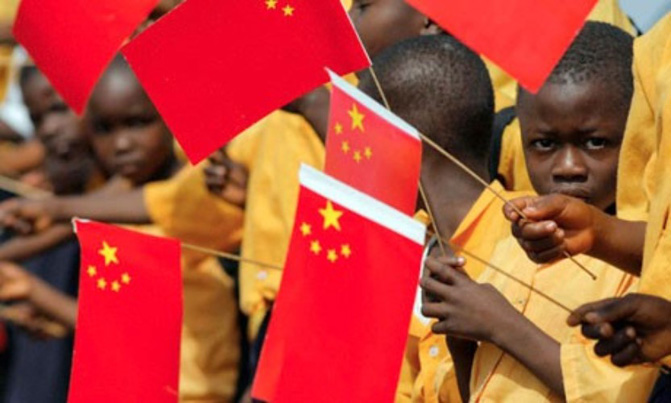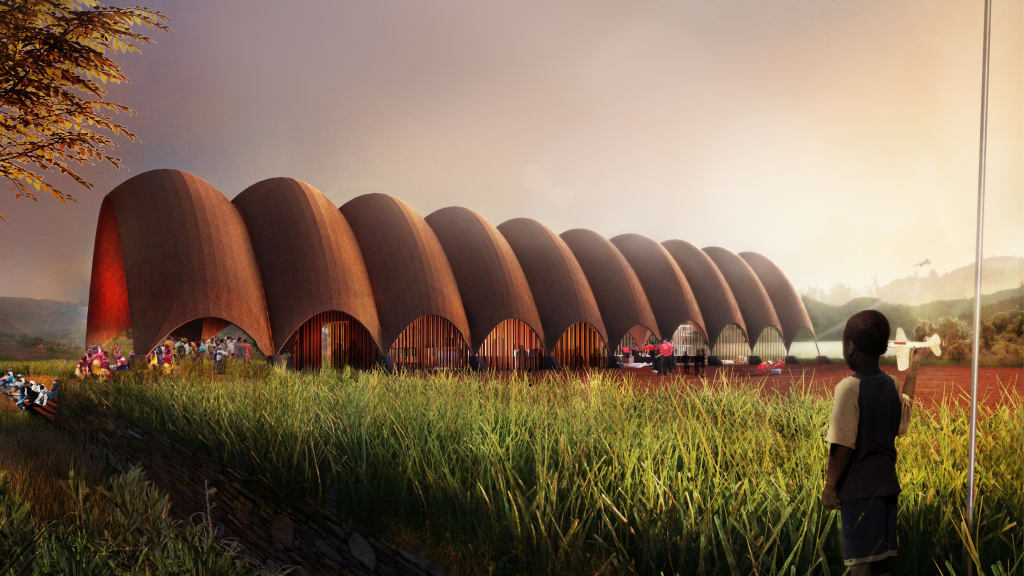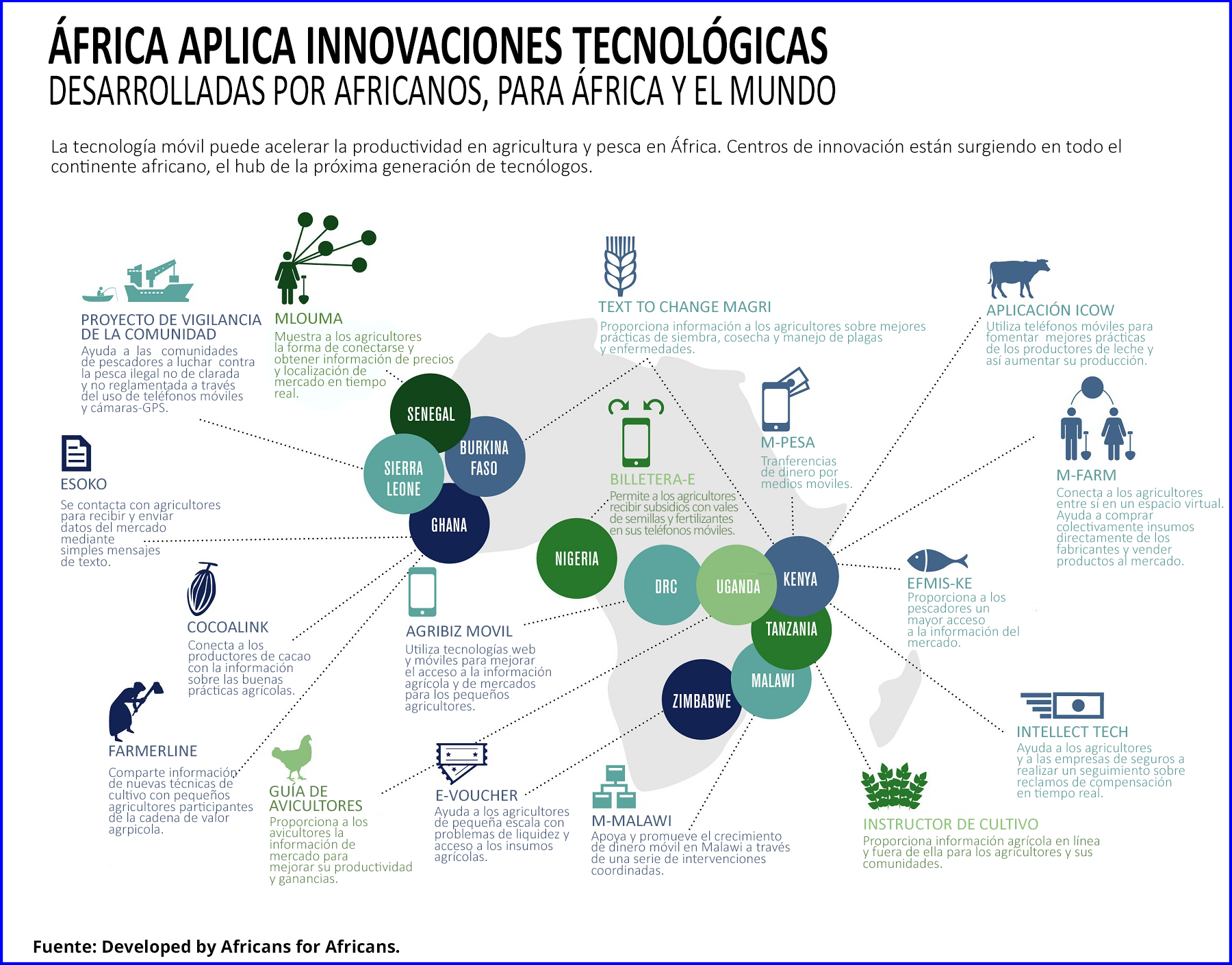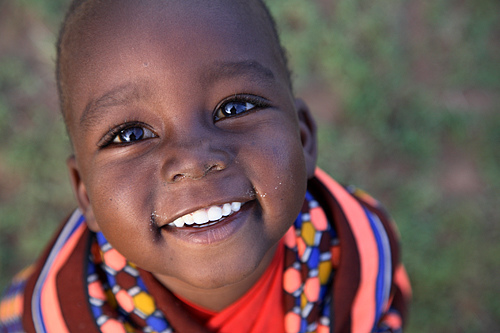A few days ago I was interested in knowing how was the movement on the African continent, a little; to get away from the political battles in these latitudes.
In the past they sold us the idea that Africa was dying of hunger. In fact it reminds me of the 1985 music video, in which more than 45 celebrities with the song "We are from the world" participated, which aimed to generate money to reduce famine and diseases in Africa. Many of you will remember that time ... Well, now conditions have improved a lot in these countries.
According to the magazine Quartz, it seems that there is already a small manufacturing cluster in Ethiopia, where some American and Chinese companies have begun to invest. China has already installed shoe manufacturing plants there. In recent years, China has also invested $ 34.8 billion dollars (USD) in energy structures in Africa since 2000. One third of the foreign investment that Chinese public banks allocated to energy projects in 2017 is in Africa ( more than the investment in Southeast Asia); since an obstacle that has always faced technological innovation in Africa is the lack of electricity, which is perhaps the technology that marks the difference between the Middle Ages and the modern world.
The Chinese landing in Africa begins to be noticed: according to a study developed in 36 African countries, the Chinese economic model is the most desired, only behind the American one. In Central Africa, 35% of those interviewed aspire to convert their countries to the new Chinas. 63% of Africans believe that the Chinese influence is "something" or "very" positive, with maxima in Mali (92%), Nigeria (84%) and Liberia (81%).

Because of this, Africa is progressing rapidly and its economic growth is largely due to the application of technologies (telecommunications for example) and the growth of investment. According to the World Bank's projections for world growth, of the 20 fastest growing economies in the world today, 11 are in Africa. Driven by the proliferation of the free market, increasing industrialization and the improvement of infrastructures. Although Africa's growth is far from homogeneous, many agree that the prospects for the future of this continent depend to a large extent on investment in technology.
The 6 fastest growing African countries in 2017 according to the World Bank:
1. Ethiopia
2. Democratic Republic of the Congo
3. Ivory Coast
4. Mozambique
5. Tanzania
6. Rwanda
These years will be key to consolidate the development of African economies and companies, where the most important factors will be the reduction in the costs of high-speed internet (broadband consumes around 30% of the income of a household), the increase of the use of smartphone across the continent and innovations in technology.

Obiwezy, based in Nigeria, is an example of a company that contributes and benefits from the mobile explosion. Acting as a market for mobile phones and refurbished devices, Obiwezy provides smartphone at a relatively low cost. The massive adoption of these devices is causing an increase in business efficiency and the disruption of sectors such as the media and the health, education, entertainment, financial and retail sectors, which contributes to a reduction in the costs of companies and greater efficiency and productivity.
Another example is "Developed by Africans for Africans" (Developed by Africans, for Africans), which with its mobile services and applications have helped millions to get ahead, providing accessible information on market prices, climate, health and even good agricultural practices. In Sierra Leone, fishing communities have used a combination of mobile phones and GPS cameras to report on foreign fishing boats that steal in their waters.
Many industries struggle to overcome the great existing gaps. African farmers, for example, need better access to information, such as weather data. The agricultural information service. For example, Esoko can now provide weather data to farmers in Ghana, suggesting that meteorological agencies need to partner with the private sector.
Technology in this way will help African countries make use of clean energies such as solar energy, which is more common to observe as an alternative method to electric light. At the same time, banking and access to financial services. In most parts of the world, banks provide the main interface for savers. However, Africa, due to its large extensions of territory, lacks bank branches, especially in rural areas, and the costs of banking are prohibitive for most people.
So, how can Africa's domestic savings be mobilized? The technology allows "peer-to-peer" loans (person-person), eliminating the intermediary. The use of mobile phones to make payments is another promising avenue. In Africa, only 25% of people have a bank account, but 70% have access to a mobile phone.
Africa longs to become China in the second half of the 21st century, and China is looking for strategic expansion in Africa. In them, perhaps more than 80 million jobs will be relocated in the next few years in China, according to The Economist. China's low-cost manufacturing tracks new destinations as the cost of labor in China increases, taxation grows, and environmental controls intensify. Africa can compete in a productive space for those activities where automation will still not be profitable. Ethiopia or Zimbabwe are two of the countries with which the Chinese government has established cooperation frameworks, although political instability hinders their continuity.

According to data updated by McKinsey, it predicts that the B2B market will grow 50% until 2025 in Africa, consolidating an incipient middle class. By 2034 you will have a workforce superior to that of China or India. Its production in manufacturing could double, from $ 500 to $ 930 billion (USD) in 2025, creating the necessary conditions to generate competitive productive ecosystems. Productivity in Algeria, Egypt, Morocco or South Africa is comparable to that of emerging countries in Eastern Europe, Southeast Asia or Latin America.
H & M and Primark (clothing manufacturers) are procured in Ethiopia. General Electric has built a plant in Nigeria to manufacture electrical equipment. Madecasse (American chocolate manufacturer) has a plant with 600 workers in Madagascar. Mobius Motors, a car manufacturer founded in Kenya by a Briton, provides vehicles to different African countries. The extension of retailing and mobile telephony, and an emerging manufacturing, increase the demand for better energy infrastructures and create more sophisticated markets. Investments flow. African communities of app development begin to be created, and large software companies are looking to Africa for low-cost programmers. For some of them, the software will be the new manufacturing.
To conclude, the so-called 4th Industrial Revolution is helping continents like Africa overcome. This revolution has the potential to alter the supply side of the economy, such as transportation and communications, which will further improve its economic growth. African countries have the opportunity to shape the fourth industrial revolution in a future that reflects their objectives and values within their economic, social and cultural environments and creating an environment that fosters both talent and innovation. The speed of change of innovations offers the prospect of facing some of the biggest problems more quickly and effectively than ever.
Do not you think that Latin America is lagging behind?
WHAT DO YOU THINK?
